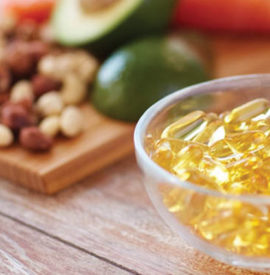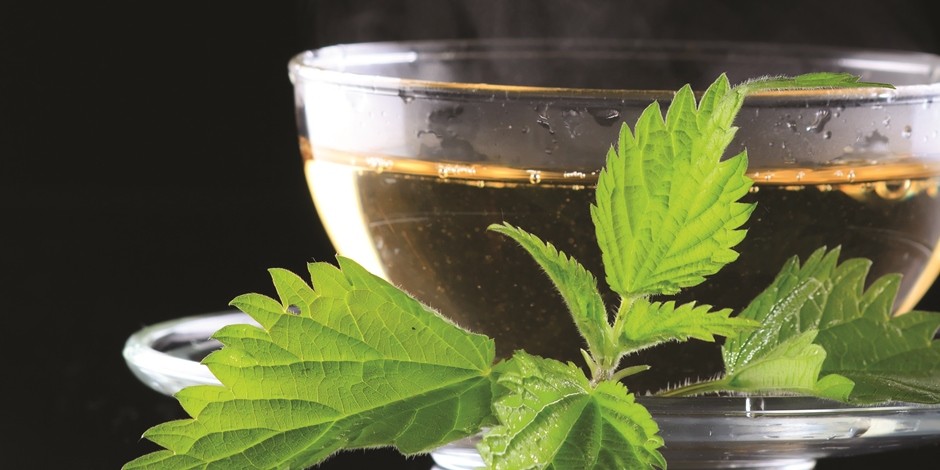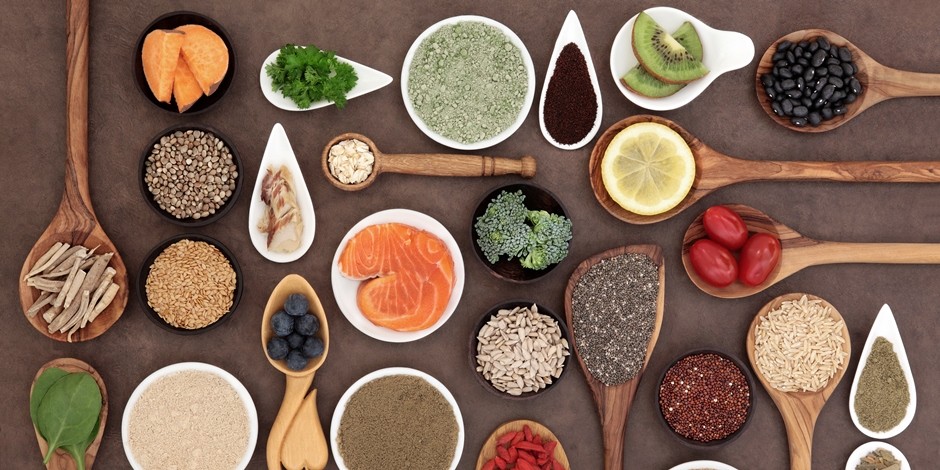According to the American Academy of Dermatology, the sun plays a major role in prematurely aging our skin. Environment and lifestyle choices also have a big impact. Several phytonutrients have shown promising results in their ability to protect our skin from the sun, preserve skin health and keep us looking younger longer. Try adding these plant-based nutrients to your diet to give your skin a healthy boost.
Lycopene
A carotenoid with antioxidant properties, lycopene is found in red fruits and vegetables like tomatoes and watermelon. Carotenoids are also present in our skin, but since humans don’t actually produce them they must be consumed in our diets.
Studies have shown that when lycopene-rich foods are eaten or the nutrient is consumed in supplement form, the skin’s concentration of lycopene increases. One skin benefit of lycopene consumption was found when subjects who consumed 16 mg/day during a 12-week study were protected from the damaging UV rays that cause sunburn.
Another study sought to determine whether or not the lycopene concentration in the skin could impact the volume of skin wrinkles and furrows in adults between the ages of 40 and 50. As it turned out, the subjects who had higher levels of lycopene in their skin did in fact have smoother skin than their peers with lower lycopene concentrations.
How to Take It: Tomato juice, tomato paste and spaghetti sauce are good sources of lycopene. If you aren’t consuming these daily, then it’s best to take in supplement form.
Catechins & Epicatechins
Each of these flavanols has known antioxidant abilities. Cocoa products such as dark chocolate are rich in these flavanols and have been studied for their anti-aging effects. A 2016 study of women over 40 with visible wrinkles investigated whether or not consuming high-flavanol cocoa (containing 320 mg of cocoa flavanols) for 24 weeks would improve wrinkles and elasticity. By the end of the study, the researchers found that both skin elasticity and wrinkles had improved in the cocoa-drinking group while the subjects on placebo showed no changes.
How to Take It: Cocoa flavanol supplements are available in capsule form, as well as in powdered stick packets that can be easily added to water or other beverages.
Catechin-rich green tea has also been studied for its skin health benefits. When applied topically, the polyphenols in green tea have proven effective for their ability to prevent the damaging effects of UV rays, such as sunburn and premature skin aging. In a 12-week study published in the Journal of Nutrition, German researchers evaluated the effects of orally ingested green tea (1,402 mg per day) on the skin health of 40 to 65-year-old women. The results showed that green tea taken in beverage or capsule form protected skin from the harmful effects of the sun. In addition, skin hydration, elasticity and wrinkles were improved giving the effect of a healthier, more youthful appearance.
How to Take It: Green tea extract is available in a variety of supplement forms, including powders, capsules and gummies. Choose the one that’s most convenient for you.











Comments